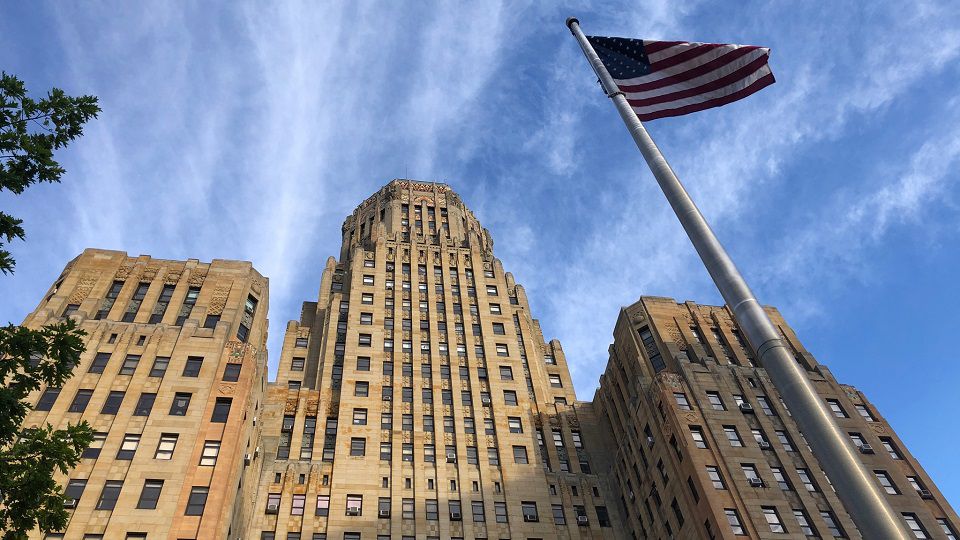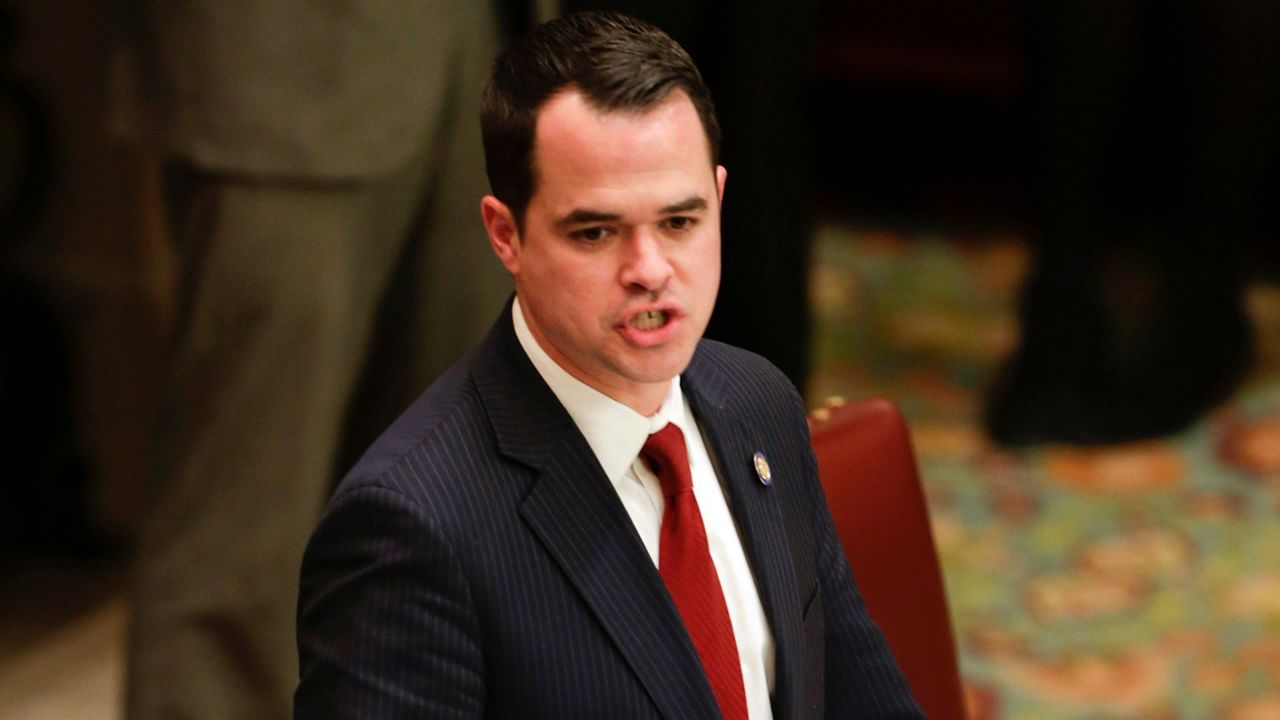CHEEKTOWAGA, N.Y. — Lawmakers, clean water advocates and the U.S. Army Corps of Engineers all seem to agree: the 13-mile-long Scajaquada Creek that flows through Buffalo's eastern suburbs and the city is gross.
"Fecal bacteria in the creek is at levels that are 20 times the threshold that are considered safe for human consumption,” Assemblywoman Monica Wallace, D-Lancaster, said. “Contaminated sludge is up to five feet deep at some places and the avian botulism has been estimated to have killed hundreds of thousands of birds in our region.”
The pollution, they said, is largely the result of abuse, alterations and poor infrastructure choices which have led to regular sewage runoff into the creek. Tuesday, Buffalo Waterkeeper and the Army Corps signed a cost-sharing agreement to cover a $600,000 restoration feasibility study.
"What it really means is that in the coming years we will be making significant progress in the actual restoration and changing and improvement segments of this creek system. It's what we've been talking about for decades," Buffalo Niagara Waterkeeper Executive Director Jill Jedlicka said.
The corps expects the study to take about two years. It will specifically focus on reversing the negative impacts from a flood risk management project in the town of Cheektowaga during the late 1970s and early 1980s.
When it's complete, the project will be eligible for up to $10 million federal dollars to implement recommendations, although the starting estimate is closer to $3.5 million.
"Implementing ecosystem restoration measures, re-establishing wetlands, improving riparian habitat and improving the diversity of native species within the stream corridor," Lt. Col. Colby Krug said.
Waterkeeper will pay its portion of the costs with already-secured state funding. Lawmakers said this project along with other restoration and infrastructure projects along the waterway should complement each other.
"Because the creek ultimately flows into the Black Rock Canal and the Niagara River, everyone should care about this waterway,” Wallace said. “We all benefit from its cleanup.”










